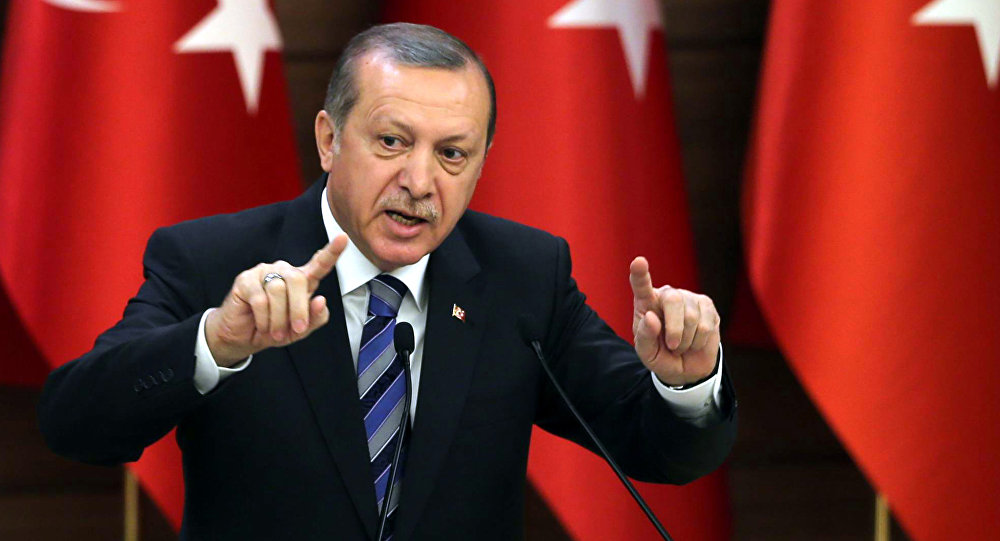Subscripe to be the first to know about our updates!

Erdoğan’s Authoritarian Turn
Jean-François Bayart
It is often observed with Schadenfreude these days that Turkey’s old authoritarian demons have returned to haunt it. And Europe feels a cowardly relief that it is finally rid of the vitriolic issue of EU enlargement into Anatolia.
The diplomatic and strategic price to pay for leaving Turkey to its own devices, alone to play a game of free rider in service of what it believes to be its national interests, remains to be seen. Already, it is eyeing the Shanghai Cooperation Organisation, the club bringing together continental Asia’s authoritarian powers under the umbrella of Russia and China. It goes shopping for antiballistic missiles in Beijing, and then in Moscow, to the great displeasure of NATO. And it is moving closer to Tehran on the Iraq-Syria issue. This was the blind spot of those who were against Turkey joining the European Union: quick to complain about the cost that this would supposedly entail, they never wondered about the cost of Turkey not joining. We have reached this point, and European democracy – as well as its security – will be the great loser from this mess.
For Recep Tayyip Erdoğan’s Turkey joined the club of “illiberal democracies” once Nicolas Sarkozy’s election to the French Presidency in 2007 destroyed any illusion of EU membership. Brussels had no means left for dealing with Ankara: neither carrots nor sticks. The result was Erdoğan’s – increasingly personal – authoritarian shift. Within several years, he had broken the backbone of the army, of the media, of his ally Fethullah Gülen’s neobrotherhood, which had provided him with the leaders the Justice and Development Party (AKP) was lacking in its electoral victory in 2002, of the parliamentary representation of the Kurdish regionalists (or nationalists), the Peoples’ Democratic Party (HDP), and of the civil, liberal and environmental opposition that had emerged across the country during the events at Gezi Park in 2013. Ahmet Insel was the first to refer to Erdoğan’s “Putinisation” or “Orbanisation”.
Until the June 2015 parliamentary elections, Recep Tayyip Erdoğan could claim to have the support of the electorate. But he then lost an absolute parliamentary majority and embarked upon a risky leap forwards. He manoeuvred behind the scenes – at the cost of a new outbreak of the civil war in the South East – to call new elections in November, and to win them.
After the attempted coup in July 2016, he lost all restraint. He custom-made a Presidential Constitution to suit his own immoderation. The AKP was under his thumb. Press freedom was de facto abolished. The November 2015 parliamentary elections and April 2017 constitutional referendum took place in a climate of police and judicial intimidation. For perhaps the first time since 1950, they were marred by suspicions of fraud. Mass purges swept through the police, the army, the judiciary, the universities, the entire civil service, and the opposition parties, condemning tens of thousands of people and their families to social death, deprived of their papers and their jobs. Elected representatives, journalists, writers, judges, lawyers, officers and civil servants languish in prison. Recep Tayyip Erdoğan, alone at the commands, President of both the Republic and his party, suggests to the crowd that it should ask him to reintroduce the death penalty.
A DARING REVERSAL
This authoritarian flashback is all the more impressive given that during his first five years in power, Erdoğan’s democratic record was not insignificant. No other Turkish leader had gone so far in recognising – culturally and politically – the Kurdish reality, or opened negotiations with the Kurdistan Workers’ Party (PKK). No other leader had so clearly questioned the ethno-religious understanding of citizenship, and so publically declared themselves in favour of a “Republic of Turkey” rather than the “Turkish Republic” dear to the Kemalists. Finally, his accession to power symbolised a turn in favour of the “black Turks” that had been marginalised by the secularist “white Turks” since the 1920s. It had a social and cultural dimension that bears recall, just as it overturned the constraints of the constitutional order inherited from the 1980 military coup.
Source; Global Challenges